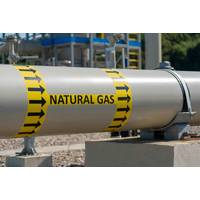OPEC Agrees Oil Cut Extension to End of 2018
Non-OPEC Russia, which this year reduced production significantly with OPEC for the first time, has been pushing for a clear message on how to exit the cuts so the market doesn't flip into a deficit too soon, prices don't rally too fast and rival U.S. shale firms don't boost output further.
The producers' current deal, under which they are cutting supply by about 1.8 million barrels per day (bpd) in an effort to boost oil prices, expires in March.
Iranian Oil Minister Bijan Zanganeh told reporters the Organization of the Petroleum Exporting Countries had agreed to extend the cuts by nine months until the end of 2018, as largely anticipated by the market.
OPEC also decided to cap the output of Nigeria and Libya at 2017 levels without deciding on figures, he added. Both countries have been previously exempt from cuts due to unrest and lower-than-normal production.
The OPEC meeting was followed by talks with non-OPEC producers led by Russia, which started at 1600 GMT. As of 1640 GMT, those talks were continuing.
Before the meetings, Saudi Energy Minister Khalid al-Falih said it was premature to talk about exiting the cuts at least for a couple of quarters and added that OPEC would examine progress at its next regular meeting in June.
"When we get to an exit, we are going to do it very gradually ... to make sure we don’t shock the market," he said.
The Iraqi, Iranian and Angolan oil ministers also said before Thursday's meetings that a review of the deal was possible in June in case the market became too tight.
But Zanganeh said later no such debate had taken place at the OPEC meeting. Two OPEC sources confirmed the group had agreed no concrete plan for reviewing the deal in June.
International benchmark Brent crude rose more than 1 percent on Thursday to trade near $64 per barrel.
Russia needs much lower oil prices to balance its budget than OPEC's leader Saudi Arabia, which is preparing a stock market listing for national energy champion Aramco next year and would hence benefit from pricier crude.
"If producers in the U.S. increase their rig count over the next few months due to higher prices then I expect another price collapse by the end of 2018," said Scott Sheffield, executive chairman of Pioneer Natural Resources Co, one of the largest producers in the Permian Basin of Texas and New Mexico, the largest U.S. oilfield.
"I hope that all U.S. shale companies will maintain their current rig counts and use all excess cash flow to increase dividends back to their shareholders," he told Reuters.
Gary Ross, a veteran OPEC watcher and founder of Pira consultancy, said the market could surprise on the upside with Brent prices rising to $70 per barrel if there was a major supply disruption.
"Everywhere you look there is an ever-present risk to supply," Ross said.
"In Iraq's Kurdistan there is a major risk to oil exports because of tensions with Baghdad, in Libya militias are still fighting, in Nigeria the risks of disruptions are significant, Venezuela is on the verge of default, Iran could again face U.S. financial sanctions and even in Saudi Arabia political risk is on the rise," Ross added.
The production cuts have been in place since the start of 2017 and helped halve an excess of global oil stocks although those remain at 140 million barrels above the five-year average, according to OPEC.
Russia has signalled it wants to understand better how producers will exit from the cuts as it needs to provide guidance to its private and state energy companies.
"We need to work out a strategy for 2018," Russian Energy Minister Alexander Novak said.






